Most evangelical institutions prefer inoffensive academics and polite pastors over powerful prophets. That's not going to cut it.
When I think about many of the Christian leaders I once looked up to, I wonder how many of them are experiencing some serious cognitive dissonance right now as they survey the cultural and political landscape in America.
One month after the assassination of Christian martyr Charlie Kirk and his gospel-saturated memorial service that God used to bring the good news of Jesus Christ to over 100 million viewers worldwide, I can only imagine that they are. Everything they thought and taught about “effective ministry methods” in a “postmodern” world has been turned upside down by the life, death, and testimony of a young man who never went to college and never coddled the Left.
The Failures of an “Inoffensive Gospel” Ministry Model
In my seminary and early church planting days, I was taught a model of cultural engagement that emphasized “non-offensiveness” as a ministry non-negotiable. Of course, my teachers acknowledged the offense of the cross, but students were told to keep political discussions and condemnation of cultural sins to a minimum. Those were considered stumbling blocks to the gospel.
As these ideas took shape, the label “gospel centered” stuck. The premier exemplar of this sort of preaching was Tim Keller. The chief textbook for this method was Bryan Chappell’s book, Christ-Centered Preaching. An army of proponents of this model coalesced into organizations like The Gospel Coalition and training institutions like Westminster Theological Seminary, Covenant Theological Seminary, and Southeastern Baptist Theological Seminary. I was first trained in this gospel centered teaching method in 2005, while I was on staff with CRU.
In theory, I found these methods compelling. Who could argue that we should avoid giving unnecessary offense? Preach the gospel. Preach the cross. Yes and amen.
In practice, however, I found it stifling. I planted an inner city church near the University of Cincinnati in 2010, and found this methodology wholly inadequate for the challenges of real ministry. I felt that my preaching lacked real power. My messages had no teeth. Sure, I was preaching gospel grace and the forgiveness of sins, but I felt constrained from explicitly naming and denouncing those very same sins.
I felt handcuffed. I could thunder about God’s love and the lavish grace of Christ, but whenever I called out abortion, homosexuality, or wokeness, I’d be accused of not “preaching the gospel.”
So I made a deliberate choice to reject that approach. It took me a couple of years to fully deprogram my ministry instincts and retrain myself to be bolder and more outspoken. I suspect a number of my seminary peers are constrained in similar ways — and still are.
How Charlie Kirk Broke the Mold
Then I think of men like Charlie Kirk. He didn’t go to college or seminary. He didn’t build a platform by adopting the tactics of the credentialed experts. He built his platform with guts and grit. Kirk spoke with a powerful combination of grace towards those who were receptive, but did not shrink from prophetically denouncing with crystal clarity the fashionable moral evils of our day.
If Kirk had gone to a typical evangelical seminary, he likely would have lost his edge. He would have learned to be more careful. He would have learned to be more measured. There’s a good chance he would have had his prophetic voice “educated” right out of him. He may have ended up as just another celebrated academic, publishing white papers at ETS, and speaking on the lecture circuit.
I’m not against those things. I thank God for theologians and academics.
My point is that our theological institutions are far more adept at producing academics when the need of the hour is more prophets.
We need men of courage and conviction these days, but the evangelical leadership that shaped the last generation of pastors trained men to bury their courage. Given the state of the church today, one can only wonder how many men go to seminary and graduate more on fire for Christ?
That’s why, in light of Kirk’s death and the incredible gospel testimony evident in his memorial service, I suspect many of those older Christian leaders are feeling cognitive dissonance right now.
Why? Because the man who arguably had the most significant gospel impact in a generation did not go through their credentialing process. He didn’t wait for the gatekeepers to stamp his preaching passport.
In fact, he did the opposite of what they would have trained him to do.
How do you make sense of that? If, as we were told, Christians should avoid political or hot-button cultural issues to maximize gospel impact, how do we make sense of the once-in-a-generation response to his assassination? It’s too soon to say it’s a genuine revival of God, but it’s undeniable that we’re seeing a resurgent interest in the intersection of biblical Christianity and conservative politics. Could it be that downplaying the cultural implications of the gospel has actually neutered our Christian witness?
And then, I’m disturbed by more questions. How many young men have had their wings clipped by the “credentialed class,” who told them that to be effective in ministry, they must be inoffensive? How many young men with hearts on fire for God sought ministry training only to have the leaders they respected train the zeal right out of them?
The Cultural Impact of Kirk’s Assassination
Charlie Kirk’s death has awakened the consciences of a generation of young men. They admire his courage, boldness, clarity, and zeal. In the aftermath of Kirk’s death, many of these young men are looking for leaders who can sharpen them and direct their zeal.
So the question before us now is this: who do they have to look to? Who will train them? Who will affirm their zeal and teach them to sharpen and wield their blades, not dull them in the dirt of non-offensiveness?
Kirk’s bold voice, testimony to the gospel, massive appeal, and effective platform are a rebuke to the credential class who would have advised him to “tone it down” and play the “long game” so that he could have a “nice career.”
Don’t get me wrong, there are still some very courageous voices out there, but many of them are speaking from outside the system because their bold voices threaten the status quo. All the incentives of the academy punish courage expressed in a conservative direction while rewarding courage expressed in a progressive direction. The academy favors innovation and breaking new ground for liberalism. It does not favor taking brave stands for time-tested orthodoxy and defending our political and theological heritage.
Students show up at seminary with hearts ablaze for the glory of God, expecting their teachers to show them how to contend for the faith once for all delivered to the saints. What they often find, however, is the tired, old corpse that refuses to die of 18th-century German liberalism, or the morally vacuous, theologically repackaged political socialism of 19th-century Karl Marx.
It’s a tale as old as time. The devil hates bold, outspoken, prophetically gifted men. And those are the kinds of men we need in our day. Lots more.
One thing is clear: Going forward, the status quo is not going to cut it. Everyone senses it. The way forward for the church is more voices in the mold of Charlie Kirk, not less.
Unfortunately, the roster of men who not only could, but would, train the next generation of Charlie Kirks is pretty thin. Most evangelical churches these days seem more likely to excommunicate the next Charlie Kirk, rather than embrace him.
But God will not leave his church without leaders, even if they come from unlikely places and use “impolite” ministry methods that offend the Kellerites. Scripture says, “God chose what is foolish in the world to shame the wise” (1 Cor 1:27).
That will be part of Charlie Kirk’s ironic legacy. He did the opposite of everything Christian leaders are taught to do, and ended up building a ministry platform that produced the largest single gospel preaching event in human history.
Share This Story

